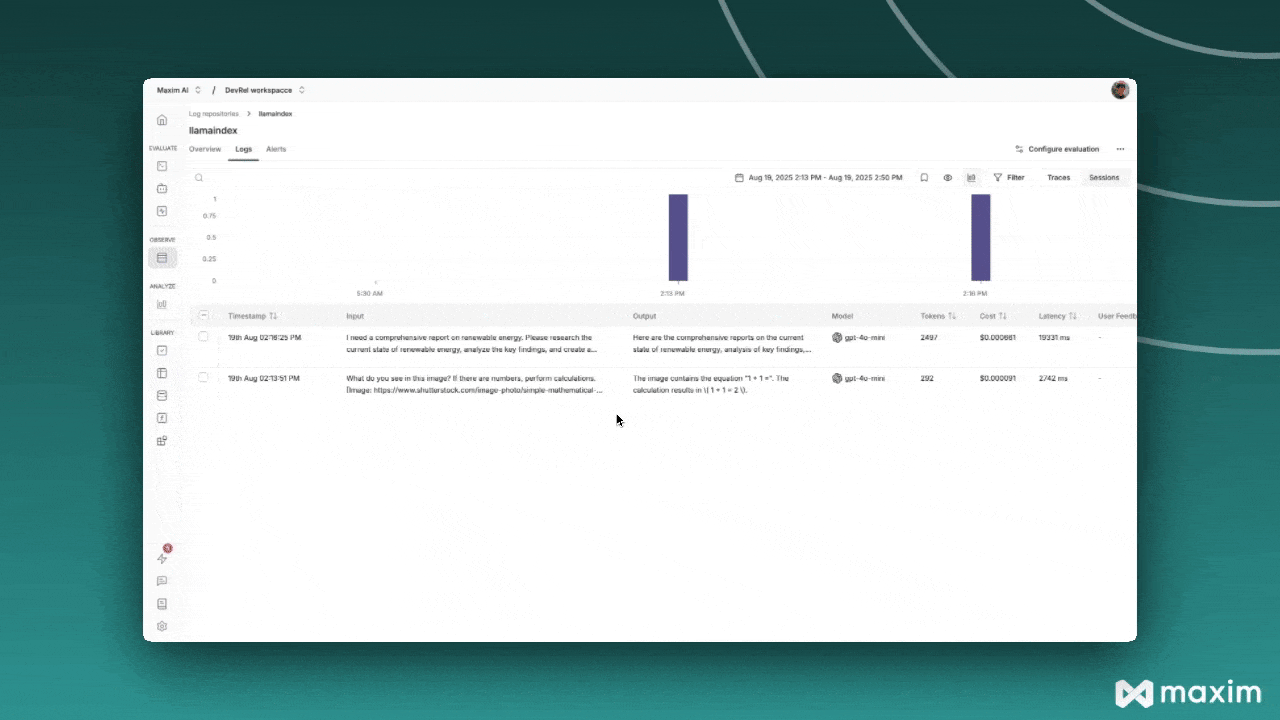from llama_index.core.agent.workflow import AgentWorkflow, FunctionAgent
from llama_index.llms.openai import OpenAI
from llama_index.core.tools import FunctionTool
# Research agent tools
def research_topic(topic: str) -> str:
"""Research a given topic and return key findings."""
research_data = {
"climate change": "Climate change refers to long-term shifts in global temperatures and weather patterns...",
"renewable energy": "Renewable energy comes from sources that are naturally replenishing...",
"artificial intelligence": "AI involves creating computer systems that can perform tasks typically requiring human intelligence..."
}
topic_lower = topic.lower()
for key, info in research_data.items():
if key in topic_lower:
return f"Research findings on {topic}: {info}"
return f"Research completed on {topic}. This is an emerging area requiring further investigation."
# Analysis agent tools
def analyze_data(research_data: str) -> str:
"""Analyze research data and provide insights."""
if "climate change" in research_data.lower():
return "Analysis indicates climate change requires immediate action through carbon reduction..."
elif "renewable energy" in research_data.lower():
return "Analysis shows renewable energy is becoming cost-competitive with fossil fuels..."
else:
return "Analysis suggests this topic has significant implications requiring strategic planning..."
# Report writing agent tools
def write_report(analysis: str, topic: str) -> str:
"""Write a comprehensive report based on analysis."""
return f"""
═══════════════════════════════════════
COMPREHENSIVE RESEARCH REPORT: {topic.upper()}
═══════════════════════════════════════
EXECUTIVE SUMMARY:
{analysis}
KEY FINDINGS:
- Evidence-based analysis indicates significant implications
- Multiple stakeholder perspectives must be considered
- Implementation requires coordinated approach
RECOMMENDATIONS:
1. Develop comprehensive strategy framework
2. Engage key stakeholders early in process
3. Establish clear metrics and milestones
4. Create feedback mechanisms for continuous improvement
This report provides a foundation for informed decision-making.
"""
# Initialize LLM and create specialized agents
llm = OpenAI(model="gpt-4o-mini", temperature=0)
research_agent = FunctionAgent(
name="research_agent",
description="This agent researches topics and returns key findings.",
tools=[FunctionTool.from_defaults(fn=research_topic)],
llm=llm,
system_prompt="You are a research specialist. Use the research tool to gather comprehensive information."
)
analysis_agent = FunctionAgent(
name="analysis_agent",
description="This agent analyzes research data and provides actionable insights.",
tools=[FunctionTool.from_defaults(fn=analyze_data)],
llm=llm,
system_prompt="You are a data analyst. Analyze research findings and provide actionable insights."
)
report_agent = FunctionAgent(
name="report_agent",
description="This agent creates comprehensive, well-structured reports.",
tools=[FunctionTool.from_defaults(fn=write_report)],
llm=llm,
system_prompt="You are a report writer. Create comprehensive, well-structured reports."
)
# Create multi-agent workflow
multi_agent_workflow = AgentWorkflow(
agents=[research_agent, analysis_agent, report_agent],
root_agent="research_agent"
)
# Run the workflow (automatically traced by Maxim)
async def run_workflow():
query = """I need a comprehensive report on renewable energy.
Please research the current state of renewable energy,
analyze the key findings, and create a structured report
with recommendations for implementation."""
response = await multi_agent_workflow.run(query)
print(f"Multi-Agent Response: {response}")
await run_workflow()
